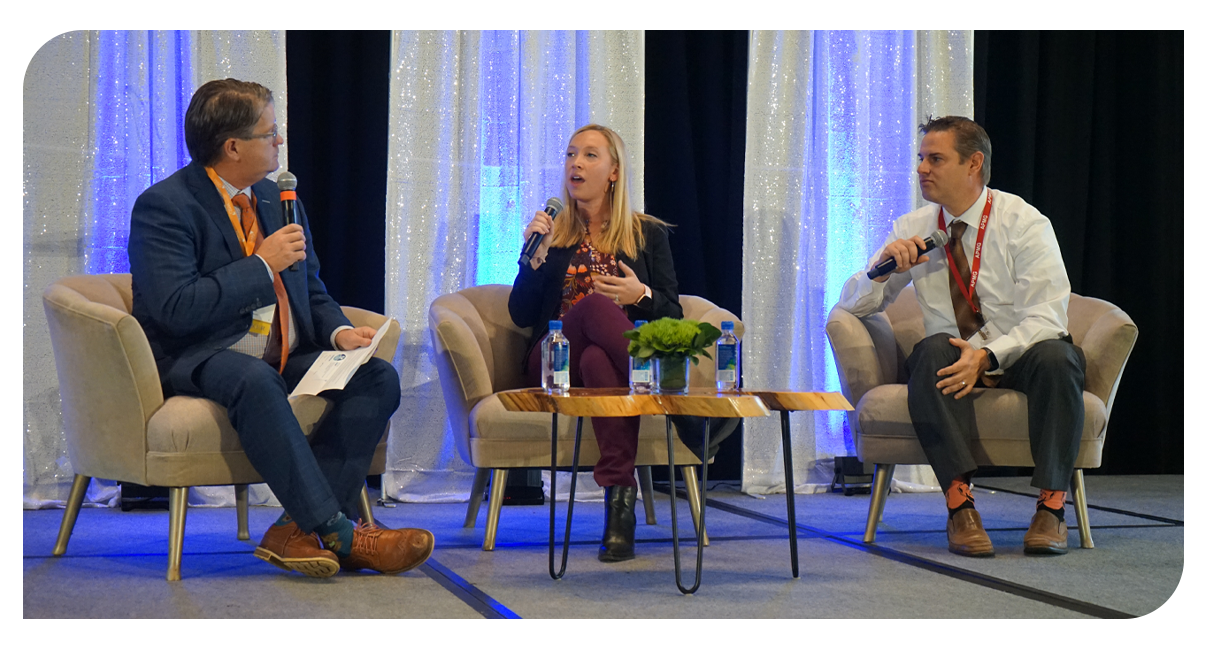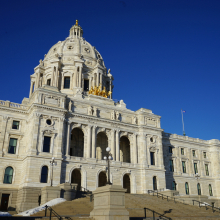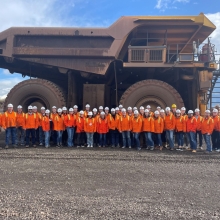The experts' take on how the election impacts the 2023 session
"[Legislators] need to understand your business. They need to understand your employees."
The 2022 election was a surprise to many. Historically, midterm elections see positive gains for the party not controlling the White House. The “Red Wave” many pundits predicted didn’t materialize in Minnesota with Democrats retaining the governorship, House of Representatives and flipping the Senate for the first single-party control of state government since the 2013-2014 sessions. What did the experts get wrong, what do the election results mean and what can we expect to see from the 2023 Legislature?
At the Minnesota Chamber’s 2022 Economic Summit, the experts weighed in on these topics and more. MPR political reporters Brian Bakst and Dana Ferguson joined Blois Olson of Fluence Media to discuss the political and policymaking landscape in Minnesota heading into the 2023 session.
Blois Olson: With a large budget surplus, how do you see budget negotiations shaping up?
Brian Bakst: That process gets started in January when the governor puts a plan on the table. Lawmakers will probably spend the next three months figuring out whether they agree with the governor's priorities or if they want to go in a different direction. They're probably going to be largely in harmony with the governor. That's one of the things with an all-DFL-controlled Legislature and governor alignment. There's going to be a lot more agreement. It's not going to be total agreement, but there will be a lot of agreement.
There's a lot of difference between this all-DFL-control situation than the last one we saw in 2013 -2014. Number one, there was a deficit that greeted them. There was a lot more pressure from Democratic groups to raise taxes and to make sure that they didn't slide on the spending side. This time with that surplus, there's going to be a lot more pressure to not necessarily go to the tax well right away.
And the majorities are much tighter. There's one-seat majority in the Senate and there's six-seat majority [in the House], so those are much tighter than they were last time. There's going to be a lot less room for Democrats to just kind of run away with things. They’re going to have to work across the aisle on some items.
BO: This ongoing conversation is about business and economic development in Greater Minnesota, specifically mining. Whereas previous leaders would say, ‘I'm for that, or I'm against that,’ but this administration has very much been, ‘Well, let's let the process take hold and see how it goes.’ When you followed it in Greater Minnesota, when you reported on it, what's your sense of the line of communication or the message that comes into the administration. Does that change at all? Or does this administration just kind of continue that tone?
Dana Ferguson: I imagine it would stay a little bit more nuanced, and that's sort of where a good chunk of the DFL has gone or is going toward wanting to do a little bit more testing to make sure before approving mining projects that there's a sense that there's not going to be adverse or environmental impacts that come with that. I don't anticipate that the governor would do any sort of 180 on where he's coming from in terms of his stance on that, but I guess it's a new term. He's safe for four years, so maybe he could change.

Blois Olson, Principal, Fluence Media (left), Dana Ferguson, Politics Reporter, MPR News (middle)
and Brian Bakst, Politics Reporter, MPR News (right) discuss
the 2022 election and what it means for the upcoming session.
BO: We all looked at the election issues, crime and inflation, but at the end of the day, those issues didn't prevail. Was it on voters’ mind? Did they talk about it? How were candidates dealing with it on the trail? Because they're going to have to probably address crime and cost either with some rebate checks or something when they get in session.
DF: Going out with candidates and hearing from voters at the doors, those were two really key issues that especially Republican candidates were out there talking about and that their neighbors were very concerned about and wanted to talk about. I think that there's going to have to be some conversation at the Capitol about getting additional funding out to law enforcement to address some of the issues around crime…The issue of the economy and how people are really feeling, just the pocketbook issues, the governor has raised the conversation about getting a thousand dollars out to folks who need that money. It doesn't seem like all DFLers are equally thrilled about that proposal, but I imagine with all that surplus money, there's bound to be some kind of conversation about getting money back to people. Whether that's more of an ongoing tax benefit or a one-time stimulus payment, some amount of money you would think is going to go back to Minnesotans.
BB: Democrats will do some tax relief, but their vision of tax relief is different than what Republicans might have done. Republicans really wanted to cut rates. Cut it on a permanent basis to keep money from coming in. Democrats will do a lot more targeted stuff. They'll put some more money into the property tax relief programs or the working family tax credits or the student loan tax credits, those types of things. I would be surprised if they go to the rates because that will kind of starve the funds going forward. They're probably going to keep the income tax rates, maybe even the business tax rates, as they are.
Audience question: Minnesota business is the engine that drives the state and does a lot of good for the state. Really all the things that you talked about are really important to Minnesota business. Can you talk to this crowd a little bit about what it's going to take for all of us with 33% new legislators out there, how we need to get out there and be in those offices and educate them about what is good for the state of Minnesota?
BO: Build knowledge. [Legislators] need to understand your business. They need to understand your employees. They went through a party convention, they doorknocked, they talked to people as voters, but they really need to understand what you do, what you need and using your employees as that. I would just say the last thing is we're Minnesota business is very Minnesotan. We don't talk about the number of people we employ, the taxes we pay, those kinds of things. It might be time to fly the flag a little higher, not as a, like we're mad, just be aware of our impact on what it means to the state.
Click photos to view full size and ESC or refresh to return to page.
2022 Economic summit attendee testimonial
"
Very good speakers and timely subjects. Well done!
"
Interested in other Minnesota Chamber events?
Join us on January 4 at the Saint Paul RiverCentre for 2023 Session Priorities! This is the Chamber's highest-profile event of the year to kick-off this year’s legislative session, bringing together business and legislative leaders from throughout Minnesota. Come to hear a preview of the legislative session from those who set the agenda, celebrate the successes of the business community and socialize with political leaders – and each other!


